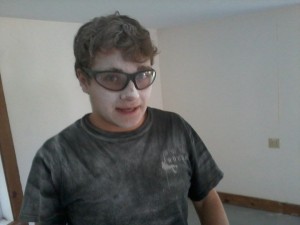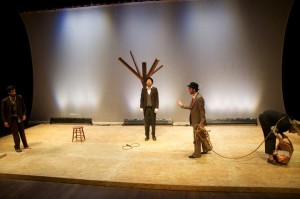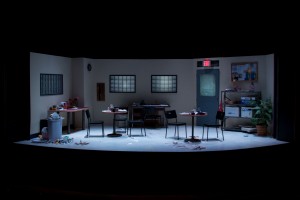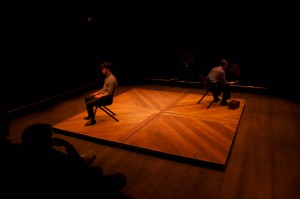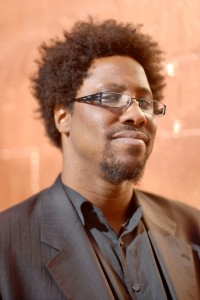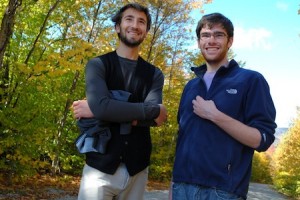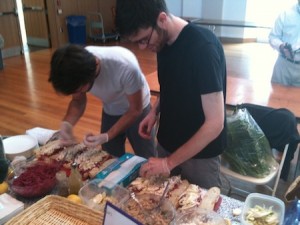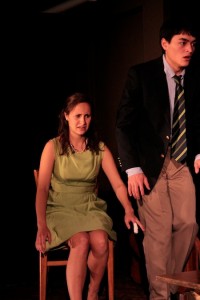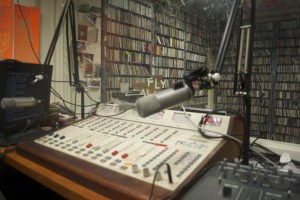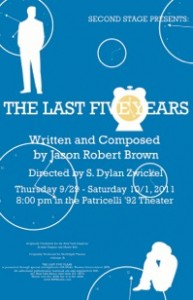An interview with Nik Owens ’12 on dance at Wesleyan by Katherine Clifford ’14. Nik is a Dance major and an Environmental Studies Certificate candidate.
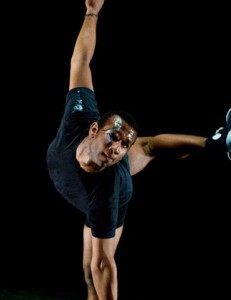
Q: How long have you been dancing and what is your background in dance?
A: I’ve been dancing for about 5 years now. I was a gymnast for 14 years before I started dancing. Before I came to Wesleyan, I danced for a year, during my senior year of high school. I started with jazz classes, then I moved to ballet classes, and I started modern when I got here. When I was younger, while I was still doing gymnastics, I did a lot of hip hop and a little tap. Now I do a lot of modern. I still do hip hop and I still take ballet classes when I can.
Q: What is your involvement in student dance groups on campus?
A: I’m co-director of Precision Dance Company, which is both Precision Troupe and Precision Ensemble, both of which I’m in. [Precision Troupe performs hip-hop pieces once a semester, while the other half, Ensemble, puts on a show choreographed by its members which includes a variety of dance styles]. I’m also a Terp [Terpsichore] Core member. [Terp Core is responsible for organizing the student-choreographed Terpsichore show that occurs every semester.]
Q: What is the process of doing a senior thesis for dance?
A: The base requirements for a senior thesis are 60 to 100 pages of writing and two semesters of choreographic work that you produce. I choreographed a piece last semester called “Mirr(or) Reality”. Generally, dance majors aren’t allowed to be in their own pieces, they just choreograph them, but I petitioned to be in mine. This semester, I’m doing a duet with Sally Williams ’14, who is also a dance major. My thesis is looking it audience and performer dynamics and relationships in different dance contexts.
Q: What dance events should the Wesleyan community look out for, besides of course, your Senior Thesis concert?
A: Yes, the Thesis Concert is a big one (the weekend of April 5-7). Also, you should look out for the Terpsichore Performance: April 13-14, the Precision Ensemble show, which is April 20, and the Precision Troupe show on Friday, May 4. Also, Chunky Move, an Australian-based company is coming to Wesleyan on March 30 and 31 to show their piece, “Connected.” That’s not to be missed. DanceMasters Weekend is also something to look out for [March 10-11.]
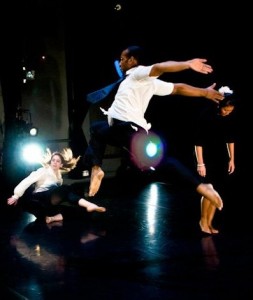 Q: What is distinctive about dance at Wesleyan, and how has dancing here shaped your experiences?
Q: What is distinctive about dance at Wesleyan, and how has dancing here shaped your experiences?
A: You get a variety of things in terms of dance here. I believe in the philosophy that everyone at Wesleyan should take at least one dance class or be involved in at least one dance-related show or aspect. Being able to explore your body in that sort of format is something that is very intuitive and special. Dance is something that everyone should participate in at least once and then decide if that’s something they like. It’s a better way to know yourself, and to discover how you think of things and how you process things, so I think dance can be really powerful in that sense.
Q: What is it like being a male dancer, a somewhat rare breed?
A: We need more male dancers! Right now, I only know of three male dancers who are really involved in the dance community; including myself, Matt Carney ’13 (also a dance major) and Cole McNamee ’15 (who is involved in the student groups X-Tacy and Precision Troupe). Those are the only other two male dancers that are consistently involved in dance on campus, and I’m graduating in the spring, so we really need more male dancers to get involved. I would say that if you’re interested in a dance major, they love male dance majors and people who’ve never danced before in their lives. It’s a lot of fun; you get to meet some cool people.
Q: Any further thoughts or advice on dancing at Wesleyan?
A: Just get involved in the dance community; either participate yourself or support your friends who are involved. Dance is pretty big on campus; there’s a lot going on. I think to go through your whole Wesleyan career and not participate in dance in any way is a shame.


